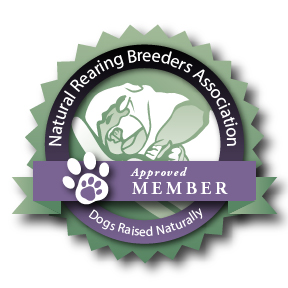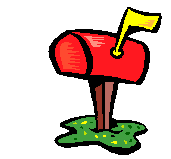Chapter –13
Dairy Products as Food for Your Dog
Modern dairy products are not entirely health promoting. This is because they are not raw… They have been pasteurised… cooked. In common with all cooked foods, they do not usually cause immediate problems. They simply do not promote long term health.
- Pasteurisation, destroys B vitamins, vitamin C, anti-oxidants, enzymes and other longevity and health promoting factors found in raw milk. In addition it denatures the proteins, making them less useful, and sometimes indigestible.
A further problem occurs when milk is homogenised. The process releases a chemical which damages the inside walls of blood vessels, thus contributing to cardiovascular disease.
Raw Milk Promotes Health
A recent study of the health of dairy farmers and their families, who ate and drank copious quantities of raw milk, and raw milk products, showed that these people were very healthy.
One hundred years ago, there were health farms that fed their clients nothing but raw milk. They very successfully treated degenerative disease such as arthritis, heart disease, kidney disease and so on, in much the same way as modern health farms with their emplasis on raw fruit and vegetables enjoy similar success.
Compare that to a couple I met recently. They were in their fifties, both had had heart attacks and both had developed crippling arthritis since moving to the country three years previously.
- They decline in health could be traced to the time they purchased a Jersey cow, and began to use her produce in vast quantities. They made one fatal mistake. They pasteurised all the milk before they used it.
Milk is pasteurised to prevent the transmission of Tuberculosis and other disease problems from cows to people. Those reasons are valid when milk is being produced under diverse conditions for large numbers of people and needs to be transported, stored and guaranteed as ‘’pure’’.
On a farm, where hygiene can be controlled and a cow can be checked for the absence of such diseases, pasteurisation is unnecessary, and positively harmful.
Despite all that, pasteurised milk products can be used as part of a balanced healthy diet for our omnivorous, scavenging friend the dog.
- However, milk and it’s products are not an essential part of a dog’s diet. The nutrients in milk are just as easily provided by other foods such as raw meaty bones, green veggies and liver or cod liver oil for example.
Cows Milk as Dog Food
Milk is the most common dairy product fed to dogs, especially to young puppies. Milk provides water, calcium, magnesium, sodium and potassium, very little iron or zinc, good quality protein, saturated fat, some vitamin A and traces of the B vitamins.
However, as I have mentioned, feeding pasteurised milk to your dog is about as good as feeding any other cooked food. On the other hand, if you can get hold of raw milk from a certified disease free cow, then what you are feeding is a whole lot better. In fact just about a complete food.
- Apart from the fact that it is cooked, the main problem with milk is that it will cause in susceptible individuals, tummy upsets, skin problem and diarrhea.
The diarrhea is very common, particularly with young pups. There are three reasons that diarrhea occurs. Two uncommon, and one very common. Fortunately, the common one can be avoided by suitably modifying the milk. Not only that, the modified milk is much more nutritious for your dog.
Milk, Allergies – Diarrhea
Milk can cause diarrhea, skin problems, rhinitis, or even lung problems due to an allergic reaction to one or more of it’s proteins. However, these are not all that common in dogs. The most likely candidate would be a teenage or adult dog fed cow’s milk as a very young puppy.
Allergies to cow’s milk are avoided by not feeding it or foods that contain it. That usually means eliminating precessed foods from you dog’s diet. Many of them contain milk by-products.
- As I routinely advise elimination of commercial dog foods from the diets of dogs in general, and sickly dogs in particular, all those allergic problems are usually eliminated anyway.
Intolerance to Milk Sugar – and Diarrhea
Some dogs develop a frothy smelly diarrhea when they drink cow’s milk. The cause is an inability to digest the milk sugar or lactose.
- This occurs because some dogs, particularly after they are weaned, do not produce the enzyme lactase which is required for digesting lactose.
Instead of the milk sugar being broken down into simple sugars and absorbed, it is attacked by bacteria which convert it to volatile fatty acids plus the gases hydrogen and carbon dioxide. The bowel contents become extremely acid. This irritates the bowel and prevents water re-absorption. The net result is frothy, smelly diarrhea.
- The problem is overcome by either not feeding cow’s milk or by feeding the dog yoghurt, which does not contain lactose, or by feeding watered-down cow’s milk.
Soy milk does not have lactose, however, it does have it’s problems and I shall discuss those shortly.
Some lactose intolerant dogs and pups can dring goat’s milk without problems. This may be because it is raw, and still contains it’s own enzymes.
Another alternative is to use one of the synthetic low lactose milks currently available today. Either from your vet or from supermarkets, chemists etc..
Cow’s Milk, Low Nutrient Value – and Diarrhea
Until recently is was believed that lactose intolerance as I have just descrided, was the main reason for dogs getting diarrhea when they drank cow’s milk.
Part of the problem was supposed to be due to the higher levels of lactore in cow’s milk. In fact, both bitch’s and cow’s have approximately equal concentrations of lactose in their milk.
- Most of the diarrhea seen when dogs drink milk is related to another difference between bitch’s and cow’s milk.
Bitch’s milk is twice as concentrated as cow’s milk. It has twice as much energy, protein and fat as cows milk, but the same amount of lactose.
Recent experiments with greyhounds which developed diarrhea whenever they drank cow’s milk, showed that when fed cow’s milk fortified with whey protein and canola oil, the dogs produced normal stools with no sign of diarrhea. Just why the improvement occurs is not precisely clear. It has to do with higher energy levels, higher protein levels and the dilution of lactose. The important thing is the results… no diarrhea !
This ties in with observations made by many breeders world wide, myself included, that when sufficiant egg yolks are added to cow’s milk (egg yolks being rich in both fats and protein), bitches, puppies and convalescing dogs in general do very well and do not get diarrhea..
Safe Milk for Dogs – Recipe
- The mix I use is a cup of milk (250ml), plus 2 egg yolks, one or two teaspoons of canola oil, a teaspoon of honey, and a small pinch of salt. This particular mixture works very well as a stimulant to mikl production in bitches unable to supply enough milk to a litter of puppies.
- Another use for that mix is as an excellent emergency substitute milk for orphan pups. To improve it for those pups, add a few drops of a complete vitamin supplement. One containing all the B vitamins, vitamin C, and vitamins A, D, E and K.
Do note that this mix, if given to a very young puppy can result in allergies to egg protein later on in life. However, better that than dead pups.
New Milk Product for Puppies
- If you think your puppies may require supplementary feeding, there is a new product called ‘’Biolac’’. Ask your vet about it. It has produced excellent results in orphan puppies.
A common method used to allow dogs with ‘’apparent lactose intolerance’’ to drink milk, has been to drastically dilute it, and then gradually strengthen it, backing off as soon as diarrhea occurred.
In the light of current evidence, it would appear far more sensible to adopt the increase in total solids approach. Note that this cannot be done in the case of a true milk allergy, or a true lactose intolerance.
- The only way you can find out in your dog can tolerate this fortified milk is to…. Feed it !
Goats Milk
Goat’s milk is a highly nutritious food. One of it’s greatest benefits is that is is available RAW. That means all the health promoting factors of enzymes, anti-oxidants and other longevity factors are still present.
The composition of cow’s milk and goat’s milk is roughtly equivalent, except that goat’s milk has more sodium and more potassium, and less calcium, protein and fat than cow’s milk. Like cow’s milk it is low in the minerals zinc and iron, but has good quantities of magnesium. It seems less able to cause allergies than cow’s milk.
Raw goat’s milk has proved itself useful as a milk substitute for young puppies. Why is has less problems in this respect than cow’s milk is not totally clear. However, goat’s milk is more easily digested, particularly by young animals. This is because it produces a more alkaline reaction in the stomach, and, compared to cow’s milk, forms a solf, friable, much more easily digested curd. It may also be because goat’s milk has a more favourable fatty acid balance. The fat is more digestible. The globules are finer and goat’s milk in naturally homogenised.
- Obviously, goat’s milk as a substitute for bitch’s milk would be a better procust with the addition of egg yolks, canola oil and B vitamins or brewer’s yeast.
On the down side, goat’s milk contains no Beta carotene. This means it cannot contribute any vitamin A to the animal consumming it.
Another problem with goat’s milk is very low levels of the vitamins folic acid, and vitamin B6. This would only be a problem where no other foods were being fed. Folic acid is found in poultry, eggs, and green leafy vegetables. B6 is found in fish, legumes, pork, poultry and other meats. So long as these foods are not over processed, these vitamins will be available.
With adult dogs, so long as goat’s milk, is not the major part of their diet, so long as the dog is not allergic to it and does not get diarrhea when give it, when no problems… go right ahead and feed it. A valuable RAW food for your dog. Remember, adding egg yolks, canala oil and brewer’s yeast will make this an excellent healthy drink for your dog.
Soy Milk
I include soy milk at this point because so many people want to use it as a substitute for cow’s milk. My strong advice is… don’t.
- It is poorly digested, has a poor amino acid profile and the phytates in it tend to bind the calcium. It really is not a worthwhile food for your dog.
- If you must feed it, you would have to add egg and calcium to make it at all worthwhile.
Cheese
Cheese is dried out milk. As dog food, it is a source of protein and fat. It is of course a cooked food. It has had the whey removed which includes the milk sugar lactose, and the amino acid taurine.
It is obviously not a complete food. However, as PART of a varied diet, feeding cheese in small amounts to your dog is fine. Just do not go overboard and let your dog train you to feed it cheese all the time. Lots of cheese will result in excesses of protein, calcium, salt and fat, to the detriment of your dog’s health. Many small dogs train their owners to do just that.
Because it has had the lactose or milk sugar removed, it may safely be fed to dogs with a lactose intolerance. (See above.) however, the calcium present in it will not be as well absorbed as the calcium present in milk because of the absence of lactose.
Lactose is important in calcium absorption. The quality of the protein in cheese is high, but cheese is low in essential fatty acids.
- Cheeze is definitely not a food you would feed to an old dog with a heart problem because of the high sodium content.
Cottage Cheese
This is great food for your dog. For your dog of any age, from puppies throught to geriatric dogs. From sick dogs to totally well dogs. It’s greatest feature is that the protein present is highly digestible and of top quality.
The protein in cottage cheese contains high levels of what are called branch chain amino acids. These are a group of three essential amino acids (Leucine, Isoleucine and Valine) which aid would healing, and help build up muscle. That is why cootage cheese is a valuable food for dogs recovering from any sort of illness. It is also excellent food for growing puppies, for pregnant bitches, for lactating bitches and for dogs that work hard.. atheletes.
- This is a food to keep in mind whenever you want to supplement a dog’s diet with a cheap, growth promoting, easily degestible, high quality protein.
You would not feed cottage cheese in large amounts to a dog with severe heart problems. It has moderately high levels of sodium. Althouth it does not have such high levels as ordinary cheese, it does have twice as much solium as potassium. Of the various types of cottage cheese available the worst one in this respect is reamed low fat cootage cheese which has twice as much sodium as the others.
Yogurt
Plain yogurt with the living culture present is an excellent food for dogs. This is because it is a live food. In many ways it is like one of the wild dogs’ natural foods, faces, which also derives its principal food value from the fact that it is full of living (and dead) bacteria.
- Basically it is milk that has had the milk sugar in it converted to lactic acid to a bacterial culture. It is the presence of this bacterial culture that gives yogurt some of its most important health giving properties for your dog.
Yogurt is an excellent source of calcium, high class protein, vitamins including the B vitamins and vitamin A (no vitamin C), enzymes and of course energy as carbohydrates, protein and fat. It is not a good source of essential fatty acids, and has similar cholesterol levels to milk.
The bacteria present in yogurt are friendly bacteria. They will live happily in your dog’s bowels, as part of your dog’s normal bowel flora. In this role it is assumed they will produce more acids, vitamin (including vitamin K) etc., which will have the effect of keeping the bowel itself healthy on a local level, and also, many of their health giving products will be absorbed into the rest of the body.
- Yogurt can be added to ANY dog’s food, sick or well. It is of great benefit to young puppies, including orphan puppies, as part of their milk formula.
Yogurt can be of great benefit when a dog has diarrhea, particularly when it is suspected that the normal friendly bacteria of the gut have disappeared and been replaced by unfriendly pathogenic bacteria, or where the balance of bacteria in the gut have been upset by the use of broad spectrum antibiotics.
In other words yogurt can be used to normalise the bacteria in your dog's bowel. The mechanism is not entirely clear. However, it is partly because the bacteria in yogurt produce substances called probiotics… rather like natural antibiotics.
Whether the bacteria in the yogurt are actually able to re-establish the normal flora of the bowel is not entirely certain. Whatever the mechanism ,yogurt is without doubt of benefit in this situation.
If your dog has to take antibiotics, feed it yogurt. The yogurt protects against the killing effect that antibiotics have on the normal bowel bacteria. This is particularly useful if antibiotics cause your dog to develop diarrhea.
Let me also say that yogurt as part of a varied diet is of grat nutritional benefit to your dog.
One more thing….you do not have to feed your dog the unhealthy sugar filled variety. Use natural yogurt.
Butter and Cream
These are pure fat. They are great energy foods. they are high in saturated fatty acids, salt and cholesterol. They do not contain any of the essential fatty acids. They are also high in vitamin A. Small amounts are fine in the diet of a healthy dog.
If they are made from raw milk, they have all the health giving properties of any other raw foods.
Margarine – Don’t Buy It – Don’t Use It !
This is a dairy food substitue made from plant oils. It was advocated in the 1950,s for human heart patients because it is capable of blocking the synthesis of cholesterol in humans and presumably in other animals as well.
The problems with this approach to disease prevention could fill their own chapter. Marguarine is a totally artificial food for which no currently alive animal (including dogs and human) is suited. The bottom line is that the extensive use of margarine is linked with cancer, but unfortunately, not with any lessening of coronary heart disease.
In other words margarine is definitely NOT a health food. It you must have it in the house, be king to your dog and make sure he or she does not get any.




